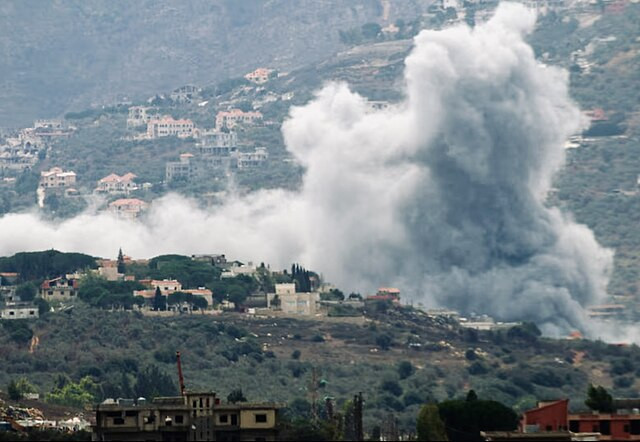A ceasefire between Israel and Hezbollah took effect early Wednesday, raising cautious optimism in a region ravaged by over a year of conflict. The agreement, brokered by the United States and France, aims to end cross-border hostilities that have killed thousands and displaced millions.
The ceasefire, which began at 4 a.m. local time, was announced after Israel's security cabinet approved the deal in a 10-1 vote. President Joe Biden, speaking from the White House, emphasized the agreement's potential for long-term stability. "This is designed to be a permanent cessation of hostilities," Biden said, adding that Hezbollah and other groups "will not be allowed to threaten the security of Israel again."
Under the terms of the agreement, Israeli forces will gradually withdraw from southern Lebanon over the next 60 days, and the Lebanese army will take control of the territory along the border to prevent Hezbollah from rebuilding its military infrastructure. The U.S. and France, along with the United Nations Interim Force in Lebanon (UNIFIL), will oversee compliance with the ceasefire, though no American or French combat troops will be deployed.
In the hours leading up to the truce, Israeli airstrikes intensified across Lebanon, including in Beirut, Tyre, and southern villages near the Israeli border. The Lebanese Health Ministry reported that at least 55 people were killed in the final wave of attacks on Monday, bringing the death toll since October 2023 to 3,823, with over 15,800 wounded.
Displaced civilians cautiously began returning to their homes in southern Lebanon on Wednesday, despite warnings from the Israeli military to delay reentry. Cars laden with mattresses and furniture streamed south through Tyre, while some residents expressed relief tempered with hesitation.
"The Israelis haven't withdrawn in full, they're still on the edge," said Hussam Arrout, a father of four displaced from Beirut's southern suburbs. "We decided to wait until the army announces that we can go in. Then we'll turn the cars on immediately and go to the village."
Lebanese caretaker Prime Minister Najib Mikati welcomed the ceasefire as a step toward rebuilding the nation. Foreign Minister Abdallah Bou Habib confirmed plans to deploy 5,000 Lebanese troops to the south to maintain order as Israeli forces withdraw.
Israeli Prime Minister Benjamin Netanyahu also hailed the ceasefire but warned against violations. "We have set it back decades, eliminated its top leaders, destroyed most of its rockets and missiles, neutralized thousands of fighters, and obliterated years of terror infrastructure near our border," he said, referring to Hezbollah. Netanyahu said the agreement would allow Israel to focus on perceived threats from Iran and replenish its military supplies.
The conflict, ignited by Israel's invasion of Gaza in response to Hamas's October 2023 attacks, saw Hezbollah engage in cross-border assaults in solidarity with its ally. While the ceasefire does not address the ongoing war in Gaza, it raises hopes for de-escalation in the broader region.
Iran, a key supporter of Hezbollah, welcomed the truce. Iranian Foreign Ministry spokesman Esmaeil Baghaei called on the international community to maintain peace and pressure Israel to halt its Gaza offensive, which has reportedly killed over 43,000 people since October 7, 2023.
Hezbollah has yet to formally comment on the ceasefire, but senior official Hassan Fadlallah stated that the group would emerge stronger. "Thousands will join the resistance," he told Lebanon's Al Jadeed TV.
Despite the cessation of hostilities, skepticism remains. Residents of northern Israel questioned whether the ceasefire would bring lasting peace. "I'd rather we continued fighting and only agree to a ceasefire when we're really in control," Miro Vahknin, a resident of Nahariya, told the Times of Israel, reflecting broader uncertainty about the deal's durability.




